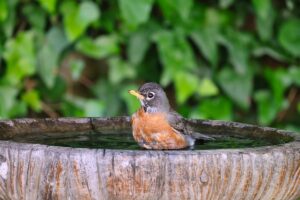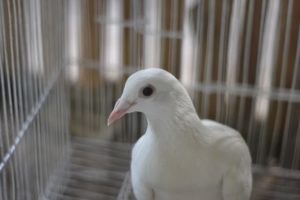Poisoning, Shooting, Trapping: Are These Legal Methods of Getting Rid of Pigeons?

A pigeon infestation can become so overwhelming that it presents a health hazard to everyone living in the area. Pigeons are known for carrying fleas, ticks, and other parasites that can be potentially harmful or fatal to humans. With a growing population, the likelihood of being in contact with pigeons and the dangers they present is increasing.
Here is some advice for people looking for a permanent solution to a growing pigeon problem:
Poisoning
Several poisons will kill pigeons. Some are specially produced for this function, but any poison containing heavy metals like arsenic or thallium will also work. However, this approach is not regarded as humane as poisoned animals often die an agonizing death. This could be too much to have on your conscience.
Additionally, another serious disadvantage of pigeon poison is that you could inadvertently poison other bird and animal species. There is no way of ensuring that only pigeons ingest the poison you put down. Squirrels and chipmunks or some endangered bird species could also access it.
Research the bylaws in your area about pigeon poisoning. Some local governments do not allow it as the practice exposes people, birds, and animals to potential harm. Additionally, many experts believe that killing a few pigeons does not solve the problem as the breeding cycle will perpetuate.
Shooting
It is most unlikely that any bylaws will advocate the shooting of pigeons in built-up areas in towns, cities, and suburbs. You should not even consider using an air rifle as it could cause a severe injury if you miss your target.
No matter how well-intentioned, shooting pigeons will do more harm than good. You are unlikely to be popular with the neighbors if your property sounds like a warzone. Trouble with municipal authorities or law enforcement could also follow.
Additionally, killing pigeons is not always the answer. More will take the dead pigeons’ places, and reproduction will continue. This means that you will need to keep shooting pigeons to keep the population number under control.
Trapping
Juxtaposed with poisoning and shooting, pigeon trapping is a far more humane and legal approach to resolving the problem. However, many people do not practice it as pigeon trapping is a time-consuming process.
Most store-bought traps are designed to capture pigeons and keep them there until you can relocate them. However, some people poison their trap’s food supply, killing the pigeons. Some folks have created a few designs that kill pigeons once they are caught, either by suffocating or crushing them. Regardless of the method, trapping should not be used with the intent of killing pigeons, as each presents the specter of a painful death after inhumane suffering.
Used correctly, traps can be an effective way of getting rid of pigeons. That does not mean your efforts will be rewarded with 100% success. When you think about homing pigeons, what is their strength? It is the ability to find their way back no matter where they are dropped off. Therefore, relocating trapped pigeons might backfire as they will return.
What are the alternatives?
Pigeons are adaptable opportunists that take advantage of any comfort made available to them. This includes a comfortable nesting spot and an adequate food supply. If you have a pigeon infestation, examine what you are doing to make your house a pigeon’s idea of paradise. Pigeons feast on garbage and chase other birds away from grains you put in a bird feeder. They also nest under the eaves of a roof because they are accessible.
It could be time to make your home a little less of a pigeon Shangri-La by eliminating access to any food sources and using barriers that prevent the birds from nesting. These include nets, spikes, and other products. You can also remove their nests as they will soon understand they are not welcome and find somewhere else to set up a house.
Thinking ahead
While any alternatives mentioned before might act as pigeon deterrents, do they solve your pigeon problem? This is not necessarily the case. A new approach is to prevent pigeons from reproducing. Pigeons with a secure nest and food source breed multiple times a year. If you can prevent that from happening, you will have better success at eliminating your pigeon infestation.
Pigeon birth control can be distributed via a pigeon’s food. It prevents eggs from hatching, thereby limiting reproduction. Some people also opt for dummy eggs to replace real pigeon eggs. However, this is better used by pigeon fanciers.
Crawling around your house’s eaves or apartment’s window sills, removing pigeon eggs and substituting them with dummy ones, could end badly for you. Like all birds, pigeons are protective of their nests, especially when they are waiting for eggs to hatch. Therefore, you might encounter a few angry pigeons who will attack you as a perceived threat to their nest.


